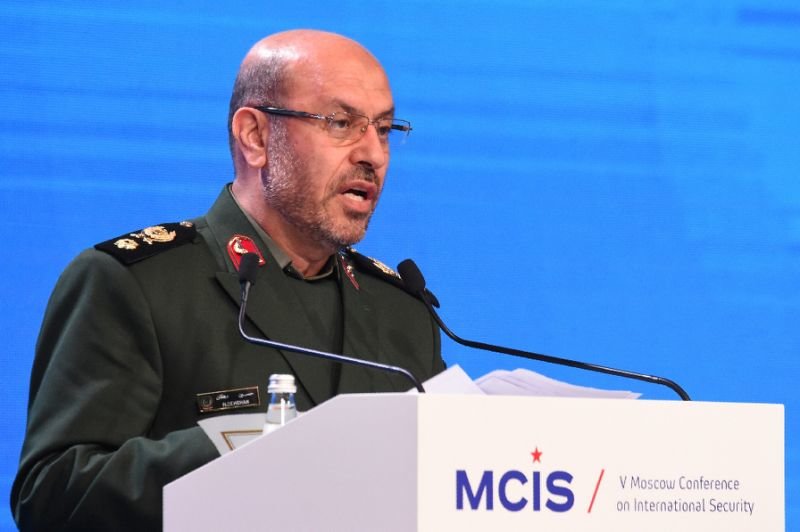U.S. reviving global fascism through commercialized security

TEHRAN – Addressing the Moscow security conference on Wednesday, Iran’s Defense Minister Hossein Dehghan said Washington is pursuing a new version of “global fascism” in the post-Cold War era to hold its grip on the international order through “commercialization of security.”
“The U.S. is trying to manifest a new form of global fascism through its new doctrine of commercialization of security,” Dehghan told the delegates.
Organized by the Russian Defense Ministry, the sixth two-day Moscow Conference on International Security kicked off on Wednesday with a focus on “the prospects and trends of European security, Russia-NATO interaction, cybersecurity, U.S. ballistic missile defense (BMD) posture in Europe and Asia-Pacific, situation in Syria and Afghanistan.”
Through its fascist agenda, Washington seeks to “stabilize its future role” in the international order, Iran’s defense chief noted.
Dehghan chided the U.S. for its unjustified actions in different geographies after the Cold War, saying: “The most prominent characteristics of the international security order after the end of the Cold War are disorder, uncertainty and fluidity.”
These, the defense minister emphasized, have jeopardized global security and spurred conflicts and instability.
“Such policies have resulted in the creation of imaginary, fictitious threats, and division of working with regional and trans-regional allies to induce fear of the other, particularly Russia, China, and Iran.”
The incumbent U.S. administration has been at loggerheads with Beijing over the South China Sea, which the Chinese regularly castigate the Americans for “meddling” in the area.
The U.S. also does not agree with Iran and Russia over regional conflicts in the Middle East, particularly in Syria, where they back opposing sides.
Tehran and Moscow see the U.S. approach to the Syrian crisis and other international issues as emanating from Washington’s efforts to impose “a unilateral order” on the world.
Dehghan saw the only way to end the current crises in the world “transition to a new order which is premised upon a multipolar system” which rejects hegemony, either regional or international.
For that new order to form, it is necessary that all countries participate to pave the way for “constructive plans”, the minister suggested.
As main features of the new order, the defense minister referred to a globally concerted fight against terrorism, radicalism, and aggression, respect for the national sovereignty of countries and adopting a non-interference policy toward them, engagement in constructive dialogue, and establishment of regional links.
Iran continues to support Syria
Elsewhere in his remarks, Dehghan renewed Tehran’s support for the Syrian government, saying the Russia-Iran-Syrian front in the battleground will finally defeat terrorists and bring about a more secure, stable world.
“Iran will continue to cooperate with powerful Russia against terrorist movements until the end. The Islamic Republic is of the belief that the front formed in Syria by Russia, Iran and the Arab country’s legitimate government and its resistant people will eventually conquer the terrorists,” he explained.
He added, “It is our strong belief that the current crises in Iraq, Syria, Yemen and other inflicted regions have no military solution and internal negotiations without external meddling are the only way to end the conflicts.”
Before Dehghan’s speech, Russian Defense Minister Sergei Shoigu highlighted the Russian leadership’s decision to provide military assistance to the Syrian government to counter ISIS.
He also stressed that actions coordinated by Russia, Iran, and Turkey, the guarantors of the ceasefire regime in Syria, had allowed to establish a direct dialogue between armed opposition and the Syrian government within the Astana forum.
Efforts taken by three countries have managed to distinguish rebels from terrorists, making it easier for a solution to the conflict.
According to him, the states-guarantors intend to take additional measures for implementation of the ceasefire regime as this factor plays key role in enhancing the chance for a political settlement of the crisis.
AK/PA
